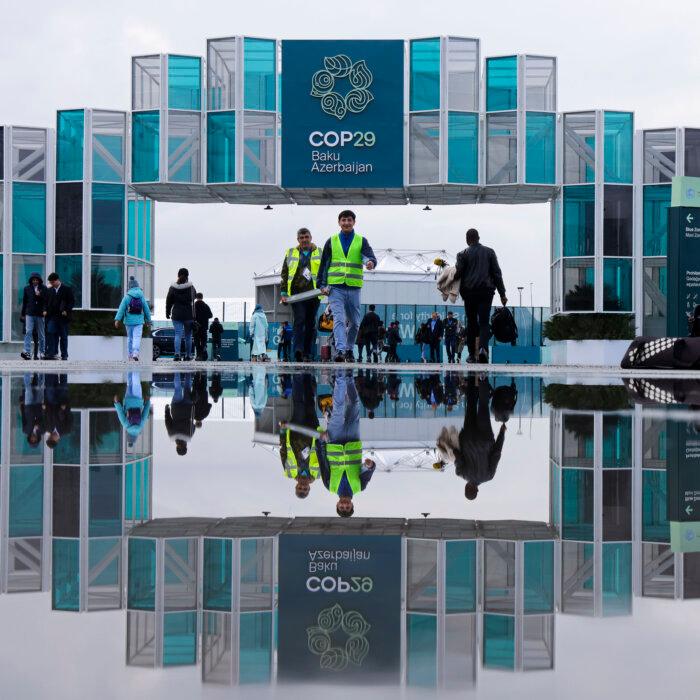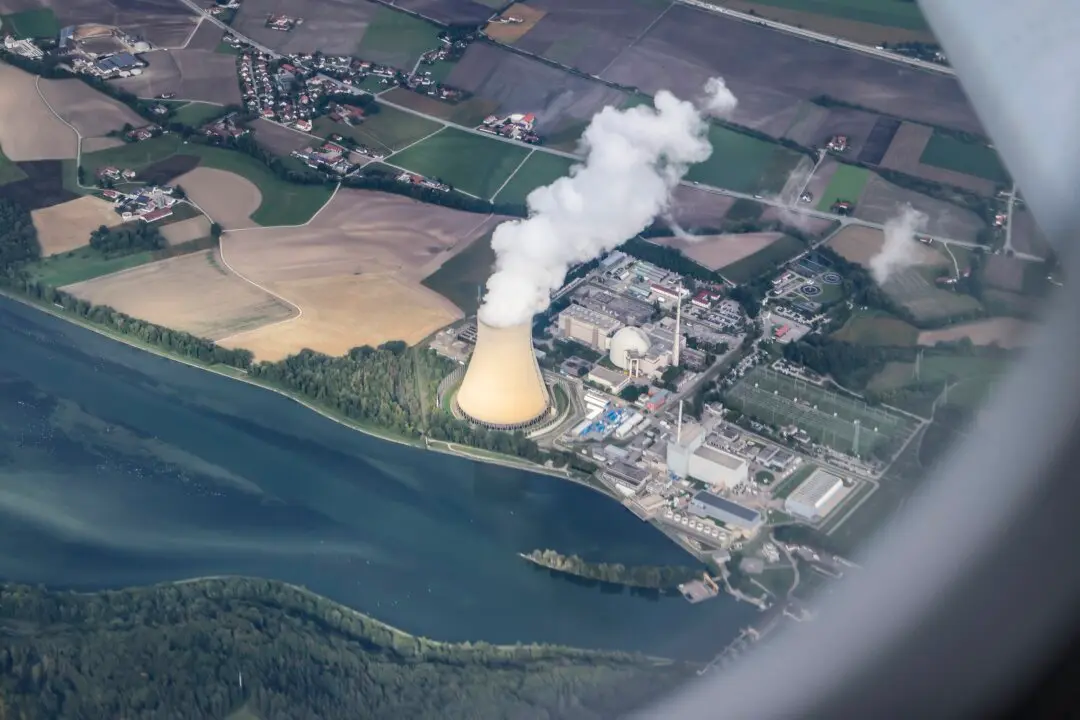Countries at the COP29 climate summit adopted a $300 billion annual global finance target—$50 billion higher than a previous draft proposal—on Nov. 24.
The U.N. climate conference, held in Baku, Azerbaijan, also finalized rules for a global market to buy and sell carbon credits.
Some delegates gave the agreement a standing ovation in the COP29 plenary hall, while others said it fell short of what was needed.
Global Financial System Reform
In closing remarks, Simon Stiell, the U.N. climate change executive secretary, said that this new finance goal “is an insurance policy for humanity.”Stiell urged leaders on Nov. 12 to “reform the global financial system,” describing climate finance as “global inflation insurance.”
“It has been a difficult journey, but we’ve delivered a deal,” Stiell said. “This deal will keep the clean energy boom growing and protect billions of lives.
Carbon Credits
It was announced on Nov. 12 that efforts will support a decade-old aim to establish a centralized carbon market by next year. On Nov. 23, negotiators struck a final deal to allow for such a system.President Joe Biden congratulated the COP29 participants for reaching what he called a historic agreement that would help mobilize needed funds, but he said more work was needed.
‘Mixed Bag’
The UK government noted that the $300 billion figure was “far less than the $1 trillion estimated to be needed.”Member of Parliament Toby Perkins, chair of the Environmental Audit Committee, said: “The 11th-hour agreement reached at COP29 is a mixed bag. On the one hand, the fact that a significant $300 billion has been pledged to support the world’s poorest in tackling the devastating effects of climate change represents real progress.
“While it is far less than the $1 trillion estimated to be needed, the sum agreed brought the negotiations back from the verge of collapse.”
Activists said that not enough was being done.
‘We Oppose’
Some negotiating blocs walked out of talks in protest, saying the agreed target wasn’t enough.“Yet, we have seen the very worst of political opportunism here at this COP, playing games with the lives of the world’s most vulnerable people.”
“I regret to say that this document is nothing more than an optical illusion,” Indian delegation representative Chandni Raina said during the closing session of the summit.
“This, in our opinion, will not address the enormity of the challenge we all face. Therefore, we oppose the adoption of this document.”






